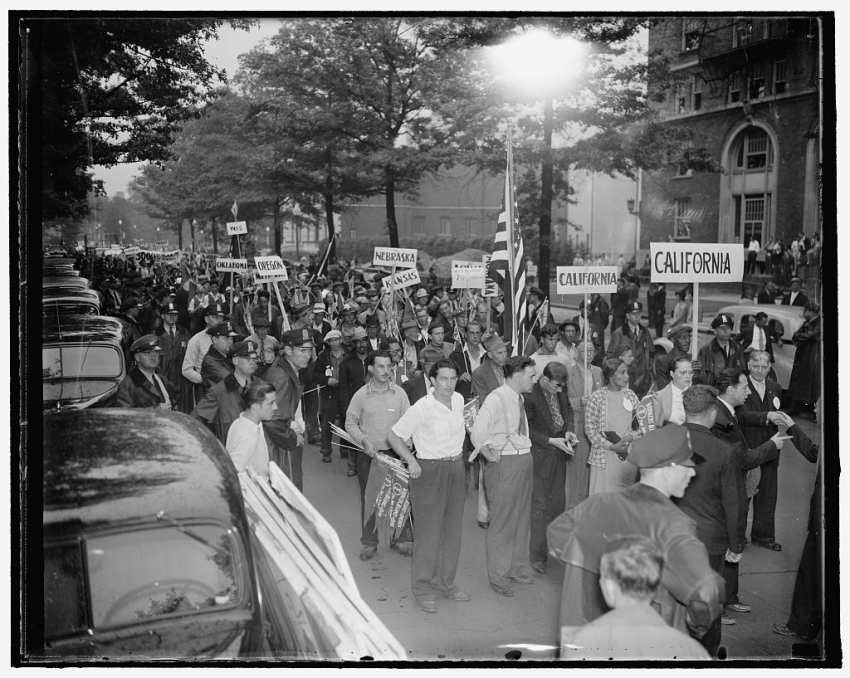How the Friedrichs v. Calif. Teachers Association SCOTUS Case Could Actually Be a Boon for Unions

Works Progress Administration workers march after losing their jobs in 1937. (Library of Congress)
As unions file their legal briefs in the epic Friedrichs vs. CTA anti-union Supreme Court case, one clever legal scholar argues that Friedrichs is “an unexpected tool for labor.”
University of Chicago Teaching Fellow Heather Whitney’s forthcoming paper in the NYU Journal of Law and Liberty makes a compelling case that an adverse decision in Friedrichs would hand unions a first amendment argument to refuse to represent non-members. And, as I have argued, that is a roadmap to union competition at workplaces, competing demands on individual employers and the end of contractual no-strike agreements.
Chaos, in other words—and just the sort of chaos that this attack on unions deserves in response.
Friedrichs and labor’s response
The First Amendment is at the heart of the Friedrichs case. It is a right-wing argument that public sector employers (in other words, the government) violate individuals’ First amendment rights by compelling employees, through contracts negotiated with unions, to pay a fee to a union. Currently, unions that are certified to represent a group of employees in a bargaining unit are legally compelled to represent all of the employees in that unit. That means not just bargaining on their behalf, but expending significant resources on grievances, meetings, communications and everything else that goes into running a union.
But union membership, including the payment of dues, is completely voluntary. That’s why unions negotiate agency fees into contracts. These fees are calculated through complicated formulas to only represent the true cost of bargaining representation. Agency fees do not pay for things like political activity (unions usually have separate voluntary political funds.
But the Friedrichs case argues that any interaction that a union has with the government, including bargaining, is inherently political. Agency fees, therefore, are compelled political activity.
This ridiculous argument is only before the Supreme Court now because Justice Samuel Alito inserted the issue into last year’s otherwise unrelated Harris Vs. Quinn case. That case was only a partial defeat for unions, as Alito lacked the fifth vote to totally do away with agency fee in the public sector. In his written decision, Alito basically solicited for someone to bring a How the Friedrichs v. Calif. Teachers Association SCOTUS Case Could Actually Be a Boon for Unions - Working In These Times:
